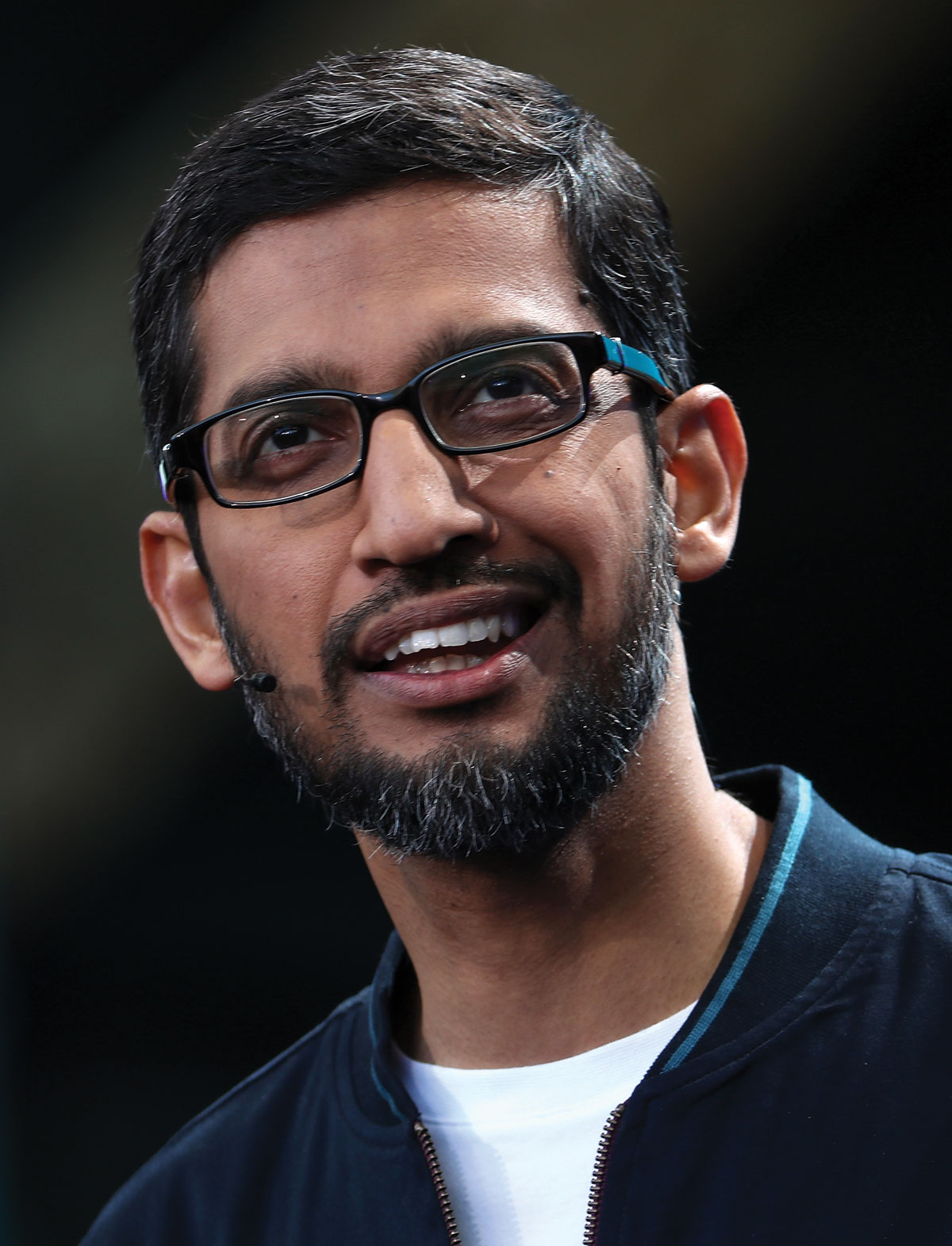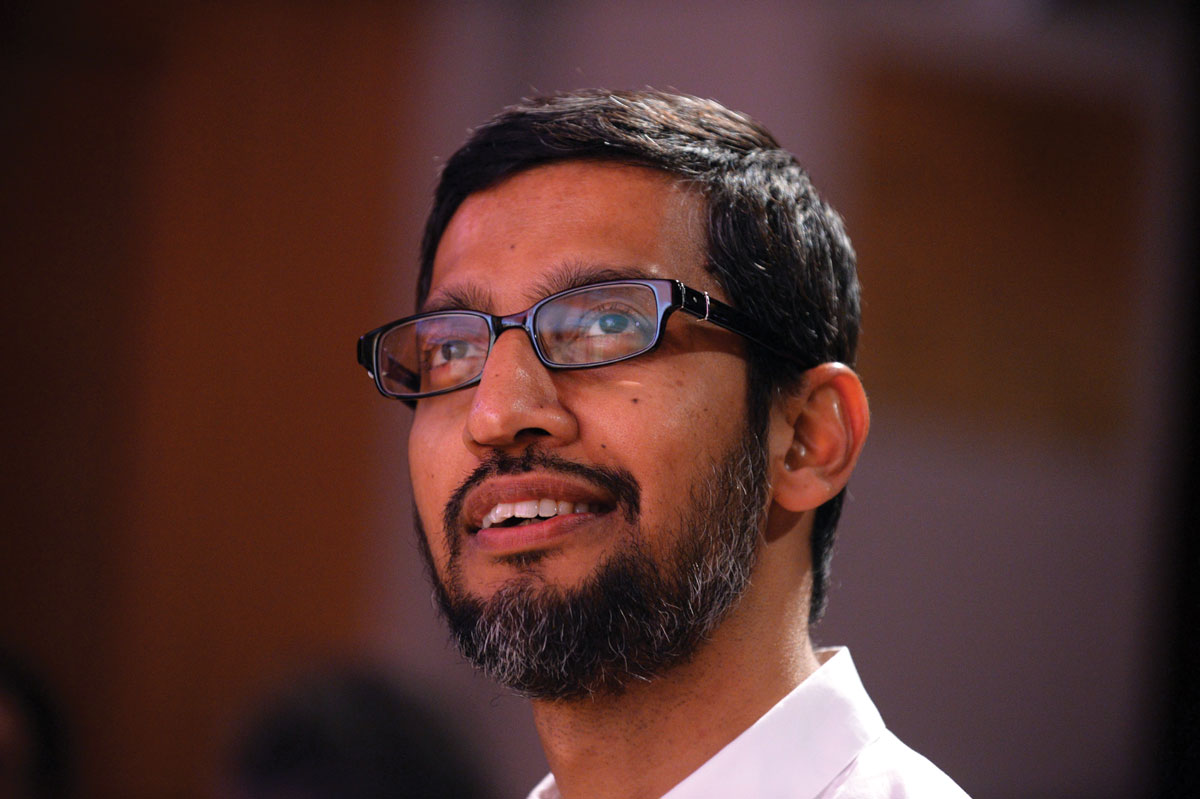Hard Work Pays: Google CEO Sundar Pichai Received Nearly $200M Compensation Last Year
File photo of Google CEO Sundar Pichai as he arrives to address a meeting at SciencesPo university in Paris, Feb. 24,2016. (Eric Piermont/AFP/Getty Images)
@Siliconeer #Siliconeer @SundarPichai #SundarPichai #Google @TiESV #TIECON #Tech #SiliconValley –Google CEO Sundar Pichai received nearly $200 million in compensation last year, double the amount he got in 2015.
Pichai received a salary of $650,000 last year, slightly less than the $652,500 he earned in 2015.
But the long-time Google employee, who was named CEO during the company’s re-organization in August 2015, received a stock award of $198.7 million in 2016, roughly double his 2015 stock award of $99.8 million.
The company’s compensation committee attributed the lavish pay to Pichai’s promotion to CEO and “numerous successful product launches,” CNN reported.
Larry Page, Google’s co-founder and previous CEO, shifted his focus to growing new businesses under the Alphabet umbrella.
Under Pichai, Google has boosted sales from its core advertising and YouTube business, while also investing in machine learning, hardware and cloud computing, the report said.
In 2016, Google unveiled new smartphones, a virtual reality headset, a router, and a voice controlled smart speaker.
These efforts have started to pay off for the company.
Google’s “other revenues,” a category that includes hardware and cloud services, hit nearly $3.1 billion in the most recent quarter, a gain of about 50% from the same quarter a year earlier.
Alphabet’s stock has soared this year, pushing it above a $600 billion market cap in April for the first time, the report said.

During his recent visit to the IIT Kharagpur campus, in January, Pichai admitted that he used to bunk classes during his engineering days at IIT Kharagpur, at an interactive session with IITians. (Siliconeer/January 2017)
When asked by students, he said, “You can build for a global market from India.”
He praised that the PPP model has been working well and the company is a big supporter of the Digital India campaign.
“To really make Google work in India, you need to make it available in as many languages as possible. English is spoken by only a small segment of the population,” Pichai said adding Google has progressed but wants to work more in rural conditions and in the right dialects.
To improve access to digital world, he said he would love to see cheaper smartphones hit the market.
“You really need to bring the prices of entry level smartphones down at around 30 dollars,” he said adding connectivity is also extremely important.
He described India as the most dynamic Internet market in the world and the second largest one.
“When we built for India, we built for the world,” he said citing the YouTube offline feature, which is now available across 80 nations.
Technologies like artificial intelligence and machine learning can make huge difference to everyday life and Google is investing in bringing these to “as many people and as fast as possible,” Pichai said.
“We are making a big bet on machine learning and artificial intelligence. Advancement in machine learning will make a big difference in many many fields,” he said.
He pointed out that the ability of computers to do tasks like image recognition, voice recognition or speech recognition, are reaching a tipping point.
“So, we are definitely at a point of inflexion,” he said, adding that Google is investing a lot in this space and if the investments are sustained over a few years, it will pave the way for the next wave of computing.
Pointing out to a paper published by Google, Pichai said machine learning can be used to detect diabetic retina, which can cause blindness if treatment isn’t administered on time.
“This is an early example of the kind of changes that will happen when you apply machine learning to all kinds of fields. Google alone won’t do this. What I am excited about is bringing machine learning and AI to as many people and as fast as possible,” he said.
Pichai said that at Google, the aim is very high and the criterion is building technology that will apply to the lives of billions of people.


